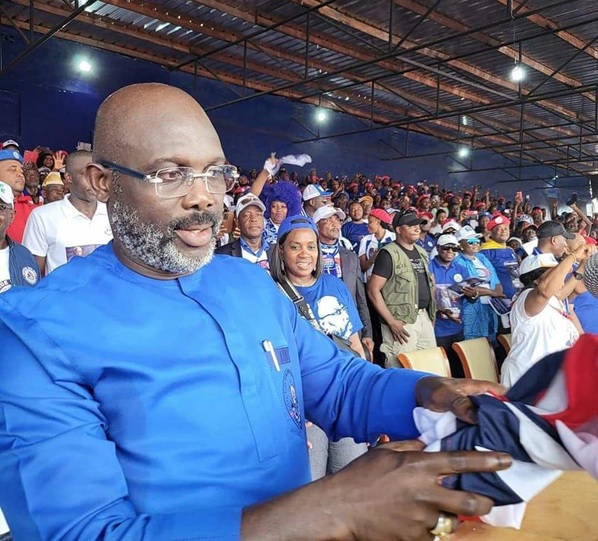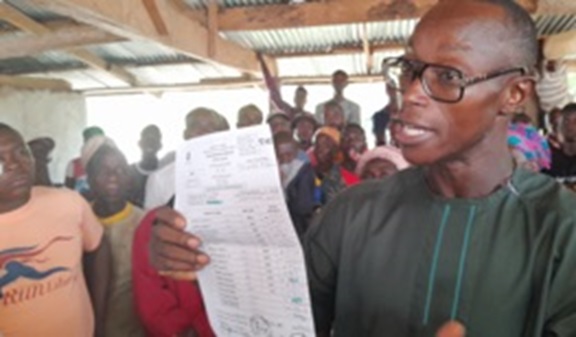With – Ekena Nyankun Juahgbe-Droh Wesley
The small West African nation is not historically known for building vibrant political institutions. Individuals have for the most part informed Africa’s oldest Republic so-called political institutions. If there’s any antithesis, we invite a debate as it were. No democracy survives in isolation. It would take truly determined and well-founded political organizations dedicated to real change to make whatever the difference. Liberia has unarguably produced men and women but the commitment to elevate state-seeking political parties has been wanting.
No one ever imagined that the True Whig Party (TWP), that undemocratically held onto power for 133 years would disappear in thin air. Simply put, the forebears of the TWP failed to form and lead a party based on fundamental beliefs or value systems. the TWP was only meant to maintain an oligarchy of divisive politics. They sadly did not encourage a culture of democratic pluralism on the basis that power would perpetually be concentrated in the hands of an insignificant minority of visionless leaders.
When the April 12, 1980 – coup dawned on them at the behest of a bunch of tactically ill-prepared non-commissioned officers, an entire fragile political dynasty crumbled. The Grand Old True Whig Party has since not been able to see the light of day. Shame! These were folks who frivolously used power irresponsibly to carry out salary cuts from poor civil servant to support an institution that did not benefit them.
The military junta led by mainly configured indigenous stock failed to live up to the very reasons a 1980 coup was staged in the first place. Promise by the Junta leader, Master Sergeant Samuel Kanyon Doe to return the country to civilian rule was truncated. Supposedly, gripped by fear over excesses by the military rulers, Doe aided by his advisers, reached the conclusion that by extending their stay in power, the likelihood of reprisals would eclipse.
Following separate state visits to Egypt and what was formerly a united Sudan between 1983 -84, President Samuel Kanyon Doe returned home, stage-managed a solidarity cum army-backed ‘no-return’ to the barracks shenanigan at Camp Shefflin to declare his candidature for the widely rigged 1985 General and Presidential elections.
Thronged by political sycophants and bootlickers, Doe defied international pressure and went ahead to impose himself on Liberians. The National Democratic Party of Liberia (NDPL), he led, like the TWP lacked any ideological clarity. Thus, following Doe’s tragic demise, the only good NDPL has been a dead party that virtually became interred with the former Liberian dictator. The NDPL, like the True Whig Party simply exists in name.
Then came a bloody and senseless war that even its architects and prime actors described as such. Out of rebel leader Charles Taylor’s war machine, the National Patriotic Party (NPP) was configured. Was it genuine? Of course, not! The NPP became a fallback when Taylor was held at bay against the backdrop that his adventurous military escape could not make a warrior-president as it were.
Amid arm-twisting at the instrumentality of ECOWAS, a hastily arranged special elections were organized in which Charles Taylor emerged as winner – questionably winning 87 percent of the overall votes. The 1997 elections were free owing to increased participation but unfair as a result of restricted access to most of the countryside where disarmament was ostensibly a farce.
Taylor and his loyalists failed miserably to transition from a rag-tagged rebel army to what a coloration of a responsible government ought to be if you may. The Party structure could not unmask itself of rebel-styled barbarism and gangsterism.
Unlike the TWP and NDPL, Charles Taylor’s loyalists are seemingly joining ranks amid the survival strategy. In-fighting has frequently marred their activities. Its latest collaboration with the ruling Congress for Democratic Change has been characterized by a see-saw political love affair dogged by marginalization. The power wielded by the NPP under Charles Taylor’s draconian regime diminished disproportionately. A handful of Taylor’s faithful lieutenants are struggling to keep the NPP afloat but the once forceful NPP under the ambit of state-sponsored machinery no longer commands such political relevance.
Birthed under the disguise of a quasi masses-based movement, the Coalition for Democratic Change (CDC), led by former football legend, George Manneh Weah became the face of the newfound political movement given his presumed popularity. For thousands of Liberians, Weah was deceptively seen as a replica of the anguish, impoverishment and slum-ness of the suffering masses. Outside of political power, the CDC as an opposition, was essentially not pragmatically structured but gained notoriety for deliberately leading scores of anti-government demonstrations during the Madam Sirleaf era.
With George Weah as the singular face of the what became known as the “Mighty Congress for Democratic Change ” – the party’s survival – given the unholy experiment of the Liberian presidency – the CDC could be poised to join the TWP, NDPL and NPP. Murmurs of a rebirthed CDC will only be as good as bringing together those who originally conceived the idea of a vibrant masses-led political party based on ideology and selfless political principles. Could they be serious? Only time will tell!
We cannot outrightly dismiss the CDC. Their showing in the First Branch of Government is enough basis to recalibrate for a rebound. The survival of Liberia’s nascent democracy would require a political theatre that is competitively engrossed. Only time will tell whether the real foot-soldiers of the masses-inspired party would envision placing their trust in another group of leaders other than George Weah – who failed dismally amid a silver-plattered shot at the Liberian presidency. The soon-to be former president has told supporters in one of his sermons that, the CDC is a young party and could resurface in 2029. Could that amount to soul-searching having lost the presidency?







